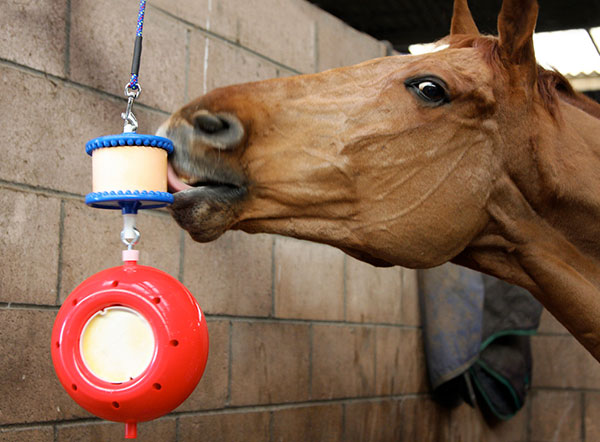
Is sugar bad for your horse?
The Science
The greatest source of sugar in your horse’s diet comes from the forage it consumes. For example, grass can supply between one and two kilos of sugar per day to a 500kg horse during the summer and good hay can supply up to half a kilo during the winter.
Other sources of sugar can be chaffs/chops (200g sugar/kg) or sugar beet (50g sugar/kg) that are molassed as well as compound feeds that contain “sweeteners” in the form of syrups/molasses/etc that supply up to 100g sugar/kg.
The average sugar content of Likits is 80% so at the maximum recommended allowance of 300g per day the total sugar intake from the Likits would be only 240g, very similar to that obtained from eating one kilo of molassed chaff or 2.4 kilos of concentrate.
The horse has evolved as an herbivore eating grass and other pasture plants, which are naturally high in sugar. Since it will be consumed under natural grazing situations we can conclude that sugar is a normal component of the average horse’s diet. Simple sugars are digested very efficiently in the small intestine of the horse and none passes into the large intestine. Sugar is essential to the wellbeing of the horse as without it, the horse would die.
The consumption of sugar by humans is a major cause of tooth decay but it is not the total quantity that you eat but how you eat it! The frequent consumption of sugary foods, drinks or sweets provides bacteria with food that they use to make acid that breaks down tooth enamel. Eating sugar in a meal is less harmful as saliva helps to wash away sugar residues and brushing the teeth after a meal eliminates the problem.
The horse is quite different as it salivates copiously when eating and thus “regularly washes” its teeth. It is virtually impossible for sugar residues to remain on the teeth and thus there is no food readily available to the bacteria that might produce acid. Of course, if the horse’s teeth are damaged in any way then food residues can become trapped with the subsequent risk of decay. But as we all know it is important to have our horse’s teeth examined every six months to ensure that they remain in good order thereby eliminating any risk of decay.
Sugar is not a major cause of tooth decay in the horse!
Dr Derek Cuddeford, Royal (Dick) School of Veterinary Studies, University of Edinburgh, Scotland, UK.


